Highway Planners Prepare for Hotter Israel by 2100
While no roads have melted, as they did during last year’s heatwave in the UK, National Roads Company is seeking more climate-resistant materials, a green road-building standard.
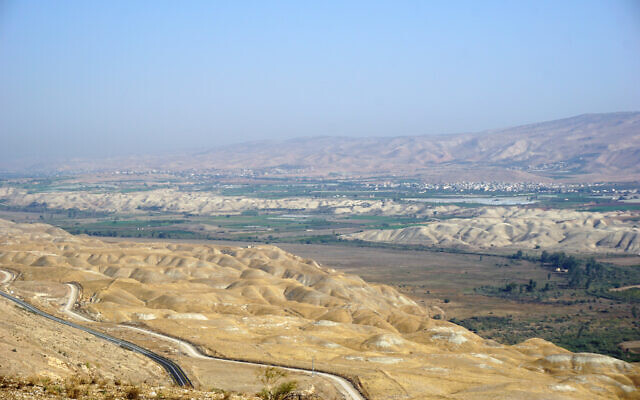
Last summer, roads in many parts of the UK turned gooey as they melted under record-breaking temperatures.
With the mercury reaching up to 104.5°F, road authorities rushed out the surface gritting machines that are usually mobilized when it snows.
In Israel, where temperatures in the Jordan Valley and the southern Arava desert can be higher, there is no record of melting asphalt.
But just 80 years down the road, the region will be considerably hotter, with the Israel Meteorological Service predicting (in Hebrew) an average increase of 6.4°F, compared with the average for the years 1988 to 2017.
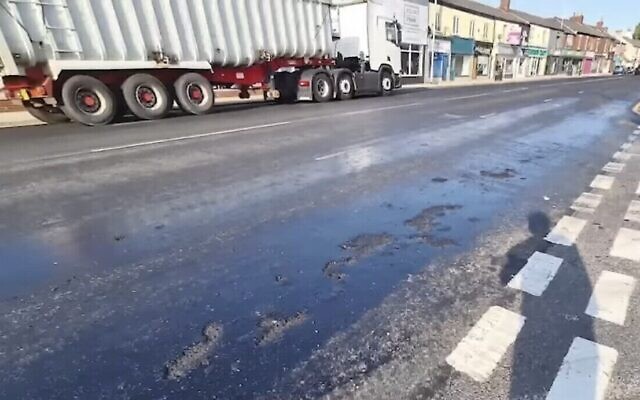
“Israel is hotter from the start and the engineering calculations are different,” explained Adi Gamliel, Sustainable Development and ESG Director at the National Roads Company of Israel (Netivei Israel, in Hebrew).
“There are so many factors to consider, from the amount of basalt [which prevents skidding] and bitumen [which binds the asphalt together], to the size of aggregates, how many layers you put underneath the surface, and the extent to which the soil below absorbs water,” said Gamliel.

He noted the company’s creation of underpasses along parts of the road that snake through the Arava Desert in southern Israel as an example of having to adapt to changing local conditions. The underpasses help save money spent repairing a road built on earth that doesn’t absorb water easily by diverting floodwaters from increasingly intensive downpours.
Gamliel cautioned against planning for average temperatures, given that they don’t reflect what can be highly destructive weather events lasting just days.
Working with the IMS and taking asphalt samples from Israel’s roads up and down the country, he and his team plan to better understand what needs to be done and how to prioritize spending.
“Today, I can’t tell you how hot the roads get. That’s what we want to check,” he said. “Some roads, in the Golan Heights [in the far north of Israel], for example, were laid decades ago or have been repaired. But up there, they might not reach the highest temperatures. In the Jordan Valley, though, a newer road might face higher temperatures and need dealing with first.”
And it’s not just climate change that is putting pressure on the roads. The highways have to be kept in the best condition possible for the emergency services and the army, in a country prone to surprise attack, Gamliel explained.
Today, many more heavy trucks pound the roads delivering mail-order items. According to Gamliel, they often transport far more than is allowed. And there are also earthquake risks to be worked into the calculations, given Israel’s proximity to the tectonically active Syrian-African rift.
Netivei Israel is looking into materials that are both more sustainable and better able to cope with extreme conditions.
In one example, it has piloted a program that integrates ground rubber from old tires into the asphalt on two roads in the Hadera area in central Israel.
Gamliel said that after a winter and a summer, the rubber-enhanced surface had proven to be more elastic and more resilient to extreme temperatures than regular asphalt. Repaving would be needed at longer intervals, helping to lower maintenance costs.
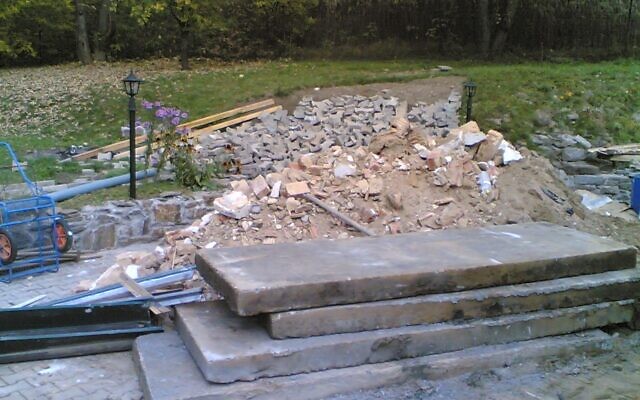
In another direction, the company is discussing how to integrate glass that cannot be recycled, or regular building waste, into road construction. Using waste from a local building site rather than gravel mined in, and transported from, the West Bank would be cheaper as well as more sustainable, Gamliel explained.
Together with the Technion — Israel Institute of Technology in the northern city of Haifa, Netivei Israel is seeking alternatives to bitumen. This is a form of petroleum and therefore a fossil fuel, whose production emits global warming gases into the atmosphere.
It is reviewing initiatives being trialed elsewhere in the world to paint roads a lighter color so that they absorb less of the sun’s heat.
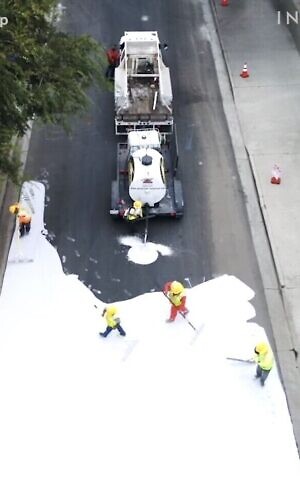
The company is currently coming to the end of an environmental risk survey, after reviewing how other developed countries, among them the US, Holland, Australia, and the UK, are setting ESG benchmarks.
ESG, which stands for environment, social, and governance, is a popular measure designed to help companies show how sustainable they are in these three fields.
“Environment” includes policies and operations related to pollution and the use of energy, water, and various natural resources.
“We’re looking at everything from emissions, energy use, acquisitions policy and the circular economy [which involves reusing materials, often discarded as waste by a different industry], to carbon taxation [not yet implemented in Israel], and the EU Taxonomy,” said Gamliel.
The latter attempts, for the first time, to define what “green” means and to list which kinds of economic activities can legitimately be called “environmentally sustainable.”
In October, Israel’s Environmental Protection Ministry published its first draft taxonomy.
Gamliel plans to present the ESG review to the company’s management and board of directors in the coming month. If approved, it will form the basis for a new work plan.
Also nearly ready for presentation is a report about green road building standards.
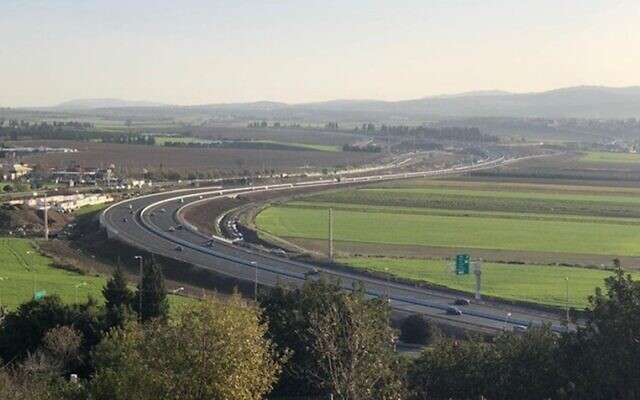
With no such standards in Israel, the company adopted the US Sustainable Transport Council’s Green Roads Rating System to build the country’s first accredited green road, Route 77 from Tel Kashish to Ramat Yishai, in northern Israel, which opened three years ago.
Since then, Gamliel’s team has been plowing through the roughly 150 clauses of this rating system to identify what’s missing from the instructions given to Israeli road-building companies.
The eventual aim is to produce a new policy document.
One notable difference between American and Israeli practices, for example, is that in the US, a social survey must be carried out before a road is built. This method has not yet been implemented in Israel.
“Our management will have to decide on things like this. Who would do such a survey? Would we need to train people? Who would pay for it? Would it be necessary for works to a single junction or just for a large project to widen a road that would impact surrounding communities?” said Gamliel.
In parallel, he and his team are working with the Environmental Protection Ministry on an Israeli green roads standard.
Several months ago, the Transportation Ministry established a climate change unit, which is still mapping responsibilities across offices.
Gamliel called for anyone with ideas to come forward and present during special sessions held for two hours every Wednesday. “Go onto our internet site, and book a meeting,” Gamliel urged. “You don’t have to know anyone. We have an open door.”
- Israel news
- Technology
- Climate Change
- Global Warming
- Jordan Valley
- Arava desert
- Israel Meteorological Service
- Adi Gamliel
- National Roads Company of Israel
- Netivei Israel
- Golan Heights
- temperature
- sustainable
- Hadera
- Technion-Israel Institute of Technology
- US
- Holland
- Australia
- UK
- Haifa
- Environmental Protection Ministry
- US Sustainable Transport Council’s Green Roads Rating System
- Tel Kashish
- Ramat Yishai
- Transportation Ministry



comments